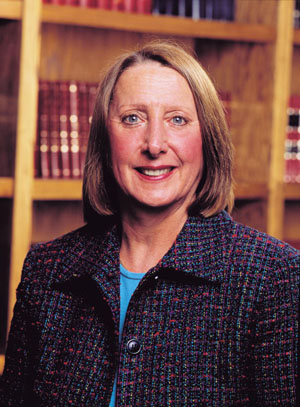While LawPRO is taking mercy on lawyers by freezing its base rate for the second straight year, the Law Society of Upper Canada is introducing a new late-payment charge for those who miss the deadline for paying member dues.

The changes come as LawPRO warns it may face a battle to freeze its rates three years in a row.
Bencher Susan McGrath, who also chairs the board of directors at LawPRO, unveiled the 2013 base premium of $3,350 at the Law Society of Upper Canada’s Convocation on Sept. 27.
But McGrath told fellow benchers “it has been and will continue to be a challenge to keep the premium either as is or with moderate increases.”
“We know that we have gone from a world where the year of claims costs in the program was in the $50- to 60-million range to a range where it’s now $80-million plus for a year,” she said.
“The harder we work to get the claims situation under control in the short term, the more leeway we will have in dealing with any adverse changes that may come in future years. So no effort will be spared in continuing to educate the profession about the causes of claims and to influence behaviour positively.”
In 2009, the last year with a definite number of claims, indemnity and defence costs topped out at more than $90 million while internal adjustments for the work of resolving claims could eventually push that total over the $100-million mark.
McGrath said the increasing volume and cost of claims are driving the unprecedented numbers. Last year, she said there were 2,468 claims, compared with about 1,800 a decade ago. Even allowing for the higher number of lawyers in the province now in practice, that’s still a substantial increase. In addition, the cost per claim jumped 37 per cent to around $42,000 between 2001 and 2009.
However, McGrath also sounded an optimistic note in pointing out that “there are some indications that the claims count may be on a new plateau.”
“A higher number admittedly, but not necessarily increasing exponentially between 2011 and 2012,” she said.
An increase in shareholders’ equity and previous premium hikes from the recent low of $2,300 in 2008 also helped boost the insurer’s coffers, according to McGrath.
“Our premium decisions are not simply knee-jerk reactions to claims numbers but reflect long-term planning for financial stability,” she said.
LawPRO also announced it would reduce its minimum 60-day premium period to 30 days, a change McGrath said would benefit lawyers, especially new calls, working on short-term assignments.
“That will certainly help locum. It will help people who may have an exemption from the insurance program but want to do some work that requires insurance so that they will only have to pay a premium for a 30-day period and will allow them to tailor the premium that they pay to the time that they are actually employed,” she said.
“This demonstrates that LawPRO is observing the trends in the practice and wants to be more flexible to accommodate those needs.”
While insurance rates remain flat, some lawyers may still pay more to practise next year after Convocation voted to cut the grace period for paying annual law society dues and filing annual reports. It will also impose $100 late fees on those who miss the deadline.
Annual fees and reports are due on Jan. 1 each year, but the law society has traditionally allowed a 120-grace period for payment and receipt.
Despite that generous interval, Bencher Christopher Bredt, chairman of the law society’s audit and finance committee, told Convocation that 3,100 of the province’s lawyers still manage to miss the late deadline. For annual reports, the figure is even worse with more than 9,000 lawyers missing the deadline.
“What that means is that the law society incurs significant administrative expenses,” said Bredt. “There is a whole process, you know, that reminders go out at a certain point in time, phone calls go out, then registered letters go out, all of which cause the society to incur additional sums. The intent of the late-payment fee is obviously to encourage people to pay on time but also to recoup some of the costs that are being incurred as a result of the failure to pay on time.”
The law society is also cutting the grace period to 60 days, something Bredt said was still more than fair.
“Most of you, when you send your bills out, you expect them to get paid within 30 days. Some of our tough clients say that they are going to pay our accounts within 60 days, but I don’t know anybody that gives anybody 120 days to pay.”
Bencher Michael Lerner called the $100 late fee a “drop in the bucket.”
“I would suggest that the penalty ought to be such that it really does encourage people to pay their fees rather than just continue to look for the indulgence of the law society,” he said. “I think it should be significantly more.”
But Bredt said the $100 figure matched a “reasonable estimate of what the expenses are.”
“The concern is if you raise it too high, you might run into concerns about criminal penalty interest,” he explained.

 The changes come as LawPRO warns it may face a battle to freeze its rates three years in a row.
The changes come as LawPRO warns it may face a battle to freeze its rates three years in a row.